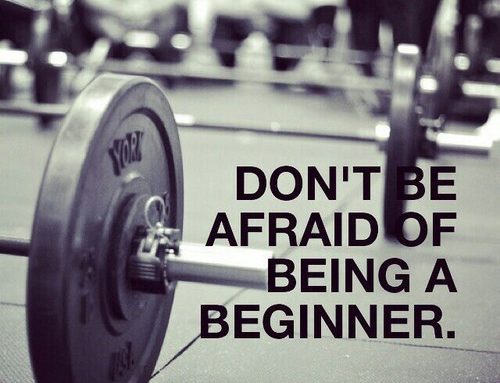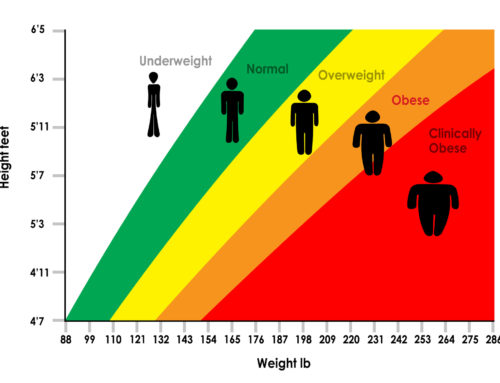First of all let me say that I am a skeptic when it comes to promotional claims, sales pitches, wonder cures, get stronger faster, etc, etc, etc, approaches. I guess it generates from my years of academic education, research, experience and an inert knowledge of how the human machine works. As CrossFit has become more mainstream and marketable to are larger audience, the supplement companies have jumped into publications, event promotion and sponsorship with a fervor. Why? Revenue.
I do think there are certain supplemental agents which can be utilized by the masters athlete to promote recovery, training, and health. Specifically as it applies to the masters athlete there are certain supplements which can support tissue health, regeneration and reduce oxidation. You see, the thing that ages human tissue primarily is oxidation. Let me also say though that I am not a registered dietician, nutritionists, or biochemist. So, my recommendations are based on the research that I have read, my academic background, personal and client experience.
Before any masters athlete considers taking any supplements they should ask themselves one question. Does my diet/nutrition support adequate levels of tissue recovery, growth and health? No matter how many supplements you take, if your diet does not support proper health and performance, you are throwing away good money for poor results. A solid whole foods diet comprised of quality lean meats, vegetables, nuts/seeds, fruits and no sugars is key to support athletic performance and health. Whether you subscribe to a strict paleo diet, zone diet, or an amalgamation of the two, you have to support training first with whole foods! Let me say that again, don’t go buy a bunch of supplements and neglect a quality diet. Spend your time and money developing a quality whole foods diet and then augment your nutritional intake with “supplements” to give you that little edge on training and recovery.
A note of caution, beware of any company that claims they have found the fountain of youth, can turn back the hands of time or make you superman or woman overnight. It’s bull s#@t. Most of the supplemental organic agents that are the most effective on the human body are naturally occurring substances that you can get from a good whole foods diet.
Before taking any supplements, have some basic blood work performed to determine if there are specific deficiencies related to your biology. For example, one such condition might be anemia. You can then augment your diet to support foods that provide iron and promote iron absorption. If needed, you can then supplement with iron. You can request this blood work from your physician. You should also discuss supplement use with your physician as needed. Also, in conjunction with a proper food diet, adequate hydration is key. Lots of water, water and more water. With today’s pervasive caffeine consumption, busy schedules and salt rich foods, adequate hydration levels usually suffer. Water should be the foundation of fluid consumption for any athlete wanting to promote performance and health. We will give some specific recommendations below.
Here is a list of basic supplement and hydration recommendations.
Hydration – The general rule of thumb here is for normal daily consumption intake. Simply take your weight in pounds and divide by two and drink that amount of ounces of water each day. So, if you are a 200 lb athlete, consume 100 ounces of water per day. In addition to that consumption, for every 1 hour of training, drink 16 additional ounces.
Fish oil – Recently, there has been significant discussion in the media and nutrition circles as to what is the appropriate dosage of fish oil. Here is an excerpt from Robb Wolf’s blog regarding fish oil consumption. Again, try to get as much as possible from whole foods.
Some take-aways
1-Reduce systemic inflammation (y’all know how), sleep, play, get sunlight, maintain your insulin sensitivity. These factors all seem to bode well for avoiding most cancers.
2-Supplement wisely, if at all. I made some pretty heavy handed fish oil recommendations in my book. I made those with the idea we could curb inflammation in sick, overweight people. I’d say my (and many other people’s) assumptions about that was/were wrong. I’ve had to modify recommendations down to the 2-4g level and have generally pushed getting as much of ones nutrition as possible from whole foods.
3-Maintain some perspective. For me life is about mitigating risks…trying to find the best ROI I can on happiness, meaningful work, etc. I’m pretty sure eating something akin to a paleo diet, smart exercise, community, lots of love are our best hedges against the unknowns of things like cancer. Is it a 100% “get out of Jail Free Card?” No, nothing is a guarantee, but there are better and worse bets.
Creatine MonoHydrate – Creatine is probably the most widely researched supplement in the industry. Creatine is a naturally occurring substance in the body produced from amino acids primarily in the liver and kidneys. 95% of the body’s creatine is stored in skeletal muscle. Creatine is used by the body to increase muscle stores of phosphocreatine(PCr), potentially increasing the muscle’s ability to resynthesize ATP from ADP to meet increased energy demands. Supplementation of creatine is thought to increase the body’s ability to convert energy and produce muscle contraction, thus supporting higher intensity levels of training for muscular lean mass development. Do not take creatine if you are allergic to it or have kidney or liver problems. A loading phase may not be necessary, but consuming 20 grams per day for the first seven days of use is recommended, followed by a maintenance dose of 5-10 grams per day.
β-Hydroxy β-methylbutyric acid (HMB) -HMB is a metabolite of the essential amino acid leucine and is synthesized in the human body. It plays a part in protein synthesis. It has been used in research and treatment to increase lean muscle mass and decrease muscle breakdown. HMB is the second most widely studied supplement and has application in the medical field and for athleteic performance. In summary, HMB can help to support muscular development, reduce body fat and support training. It has proven to be safe in the studies that have been performed. Dosage levels range from 1.5-3.0 grams per day usually divided in two doses.
Vitamin B Complex – There are eight different chemically distinct vitamins in the vitamin B complex. B complex helps to support cellular metabolism, which in turn can help to support energy levels needed for training. There is a whole laundry list of the cellular functions of these vitamins, but most importantly is the support of normal cellular metabolism of carbohydrates, proteins and fats.
Beta Alanine – An amino acid, beta-alanine is produced endogenously but can also be consumed by eating protein-rich foods containing the dipeptides carnosine, anserine or balenine (most meats).
Beta-alanine’s primary mechanism of action is considered to be via its increase of intramuscular carnosine stores. Muscle pH decreases during intense exercise. This exercise-induced acidosis leads to a decline in the muscle’s ability to contract forcefully as well as generalized muscular fatigue. Carnosine acts as a buffer to this acidosis. This allows for longer periods of exercise with less fatigue.
Beta-alanine is a proven ergogen with demonstrated effects on total work capacity, power output at lactate threshold, delayed onset of muscular fatigue during high-intensity exercise and improved sub-maximal endurance performance.
Beta-alanine, like creatine, should be introduced at least two months out from competition. Continuous use is considered safe and recommended. It should be consumed daily with a dose of 3-4 grams. No loading is needed. Some athletes experience paresthesia may occur with single doses exceeding 800 milligrams. It manifests as a tingling or itching sensation on the face and or extremities. This is a harmless reaction which is transient.
For masters athletes I don’t recommend pre-workout concoctions laced with sugars, stimulates such caffeine, etc…that are supposed to increase metabolism, ready the body for exercise and jack you up! Controlling respiration and heart rate during training is important so why accelerate these utilizing an artificial method.
Protein and Carbohydrate Intake – Many athletes and trainers advocate the use of a post workout protein and carbohydrate source in what might be phrased as the “post-workout window of opportunity.” I think this is a good practice and again has to be supported by a whole foods diet that has adequate nutrients to facilitate training and health. In general, it appears appropriate for most athletes to consume a clean source of protein (most likely whey and casein), and a fast absorbing carbohydrate (maltodextrin and dextrose). Intake is specific to the athlete size but the majority of athletes will be supported by 20-30g of each of these two nutrients. This should be consumed within 30 min post training. The reasoning for this quick consumption timeline is the high affinity to nutrient intake by the cells and improved cellular recovery and synthesis.
As a matter of fact, I will also tell you that I take Extreme Endurance for endurance recovery. This product is a combination of magnesium oxide, calcium carbonate, papain, potassium, magnesium hydroxide, catechins, selenium, chromium and black pepper. It reportedly helps to;
- Reduce Lactic Acid
- Improve Aerobic Threshold
- Speeds Recovery
- Reduces Muscle Soreness
You decide for yourself. Many of these substances can also be found in naturally occurring food sources. There are very few products or services that I will ever endorse, and when it relates to products, they will be naturally occurring substances that are simply better packaged or produced for more convenient consumption. There are a plethora of products out there from wild animal extracts to shark cartilage. Check the research out, look for quality validation of their claims and spend your money on whole foods instead!
For most of us, we are looking for supplements that will support our training and health. But there are athletes who are looking for the “magic pill or substance” that will augment their training beyond what would be naturally be possible. I would caution anyone to not spend their hard earned money in this area, but to focus more on quality training, nutrition, recovery/sleep cycles and supplements that can promote long term results.
For references for this blog, contact Darin Deaton @ dld@crossfitftw.com.





Howdy! I could have sworn I’ve visited your blog before but after going through many of the posts I realized it’s new to me.
Anyways, I’m certainly pleased I discovered it and I’ll be book-marking
it and checking back frequently!